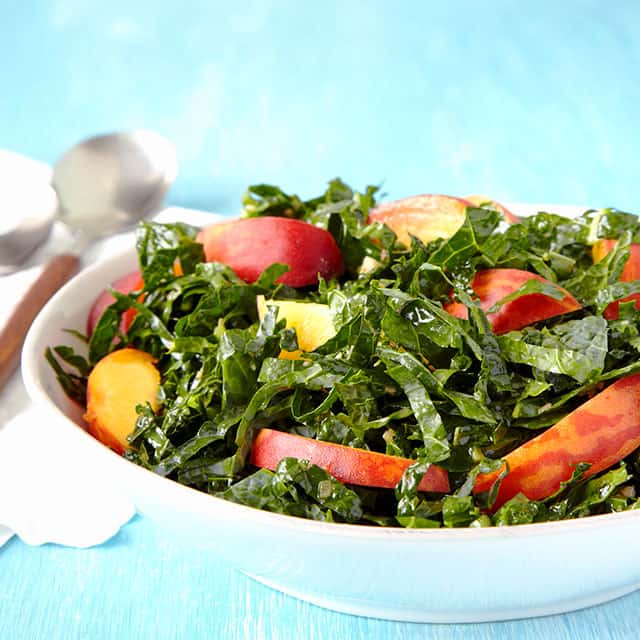Blueberries
Blueberries—dried, frozen or fresh—are rich in antioxidants and loaded with phytonutrients that may help boost immunity for allergy sufferers. According to the
Mayo Clinic, 3/4 cup of fresh blueberries are low in calories and contain 11 milligrams of vitamin C.
Pineapple

Did you know that pineapple has been used for centuries in Central and South America to reduce inflammation? It contains bromelain, a mixture of enzymes that digest protein. The
German Commission E approved bromelain to treat swelling and inflammation after sinus surgery. “Although not all studies agree, bromelain may help reduce cough and nasal mucus associated with sinus allergies, and relieve the swelling and inflammation caused by hay fever,” the
University of Maryland Medical Center reported.
Cruciferous Vegetables
Are you suffering from itchy, watery eyes? Dark green leafy vegetables
contain two pigments, lutein and zeaxanthin, which accumulate in the eye. “These two pigments appear to be able to snuff out free radicals before they can harm the eye’s sensitive tissues,” according to the
Harvard School of Public Health. Eating plenty of dark green vegetables, such as collard greens, kale and broccoli, can help keep your eyes in good shape. Don’t forget: cruciferous vegetables should be chopped, crushed or chewed well for maximum benefit!
Vitamin C-Rich Produce
For years, oranges have been considered the go-to source for vitamin C. While that reputation is well-deserved—one navel orange packs
82.7 milligrams of vitamin C—there are plenty of other colorful fruits and vegetables that give the citrus a run for its money. Raw red peppers, grapefruits and kiwifruits are among the top five food sources of vitamin C, according to
Office of Dietary Supplements. Harvard Medical School says some studies have shown that vitamin C may work in tandem with other micronutrients to boost immunity. However, the jury is still out on vitamin C’s role in preventing or treating health conditions.
Sinus-Clearing Spices
If you’ve ever eaten really spicy food, you know it will make your nose run. This is a good thing if you have allergies. Anise, horseradish, cayenne pepper and hot ginger are common spices that act as natural decongestants. Of course, spicy foods will not prevent seasonal allergies and their value for treating symptoms has never been proven. They are simply tasty ways to get some relief!
 Did you know that pineapple has been used for centuries in Central and South America to reduce inflammation? It contains bromelain, a mixture of enzymes that digest protein. The German Commission E approved bromelain to treat swelling and inflammation after sinus surgery. “Although not all studies agree, bromelain may help reduce cough and nasal mucus associated with sinus allergies, and relieve the swelling and inflammation caused by hay fever,” the University of Maryland Medical Center reported.
Did you know that pineapple has been used for centuries in Central and South America to reduce inflammation? It contains bromelain, a mixture of enzymes that digest protein. The German Commission E approved bromelain to treat swelling and inflammation after sinus surgery. “Although not all studies agree, bromelain may help reduce cough and nasal mucus associated with sinus allergies, and relieve the swelling and inflammation caused by hay fever,” the University of Maryland Medical Center reported.

 VIEW ALL
VIEW ALL



